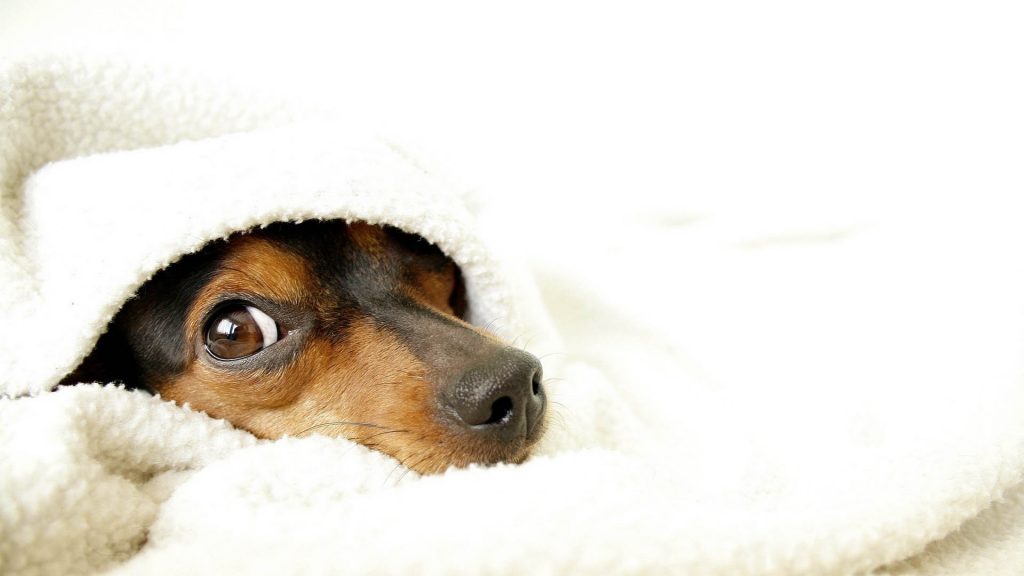Why is My Puppy Crying
Newborn babies communicate their needs by crying, and so does your puppy! But how do you know what specific reason your puppy is crying?
And what if all his or her basic needs are already met? How you respond to your puppy crying is important!
Remember, your puppy is not crying to annoy you, but rather to express himself and to try and get his needs met in the only way he knows how, so don’t yell.
If you yell, your puppy might stop crying, but it is likely he will just be hurt and confused.
If you feel yourself getting ready to yell, there is nothing wrong with taking a break…just make sure your puppy is in the crate or another safe location before leaving. The best way to deal with your puppy crying is to figure out the specific need or want he has and addressing it for him.
Once you meet your puppy’s needs, the crying should thankfully stop soon after and maybe even immediately. Below we will go through all the main reasons your puppy may be crying and what you can do to help.

SICKNESS
When we as humans feel sick or hurt, sometimes we cry, and the same is true for your puppy. If he or she is crying or whimpering on a regular basis, and it appears like all the other needs are met, your puppy might be experiencing some pain or discomfort.
If your puppy is sick, you will probably notice other symptoms as well so pay attention to things like loss of appetite, vomiting, diarrhea, lethargy, fast breathing, excessive licking, biting, or scratching, or dizziness.
Another possible symptom is that if your puppy is usually very affectionate, he may start to withdraw and avoid being touched.
If you think your puppy is sick, it is important to get to the vet as soon as possible. With older dogs, you do not always have to rush to the vet at the first sign of illness, but puppies do not yet have the immune system, so waiting can be risky,

LONELINESS
Dogs are social creatures, so they can get lonely at any age, but especially when they are puppies because they are adjusting from having their mother and siblings constantly around them. If your puppy is lonely, try to keep him with you throughout the day, even if you are busy.
It can be as simple as putting their crate next to you in the kitchen while you are cooking dinner or in the office while you are working.
An additional benefit is a fact that your puppy is less likely to have accidents if he is right next to you. Loneliness is probably less of the problem if you have multiple dogs.
FEAR
As your puppy is exploring and discovering new things, he may become more fearful of things that he has never been exposed to before.
Sometimes, they even develop fear periods where they become afraid of things that they were not afraid of previously, and the fear causes them to cry.
Don’t worry, this is completely normal, but pay attention to body language, so you know when your puppy is afraid. If you notice your puppy is afraid, remove him from the situation and try again with a less intense version later.
HUNGER
Does your puppy cry more before mealtime than any other time of the day? If that is the case, your puppy is probably crying because he is hungry. T
his could just be in preparation for his next meal, or there is a chance that he is not getting enough food. Most dog food has different recommendations based on size and weight, but it is sometimes better to pay attention to your dog’s body rather than the label.
If your dog is too skinny, give him more food. If your dog is a little overweight, give him a little less.
BOREDOM
Puppies have a lot of energy, so when they get bored, they sometimes let that energy out by crying or barking a lot. In order to make sure your puppy does not get bored, you need to provide it with plenty of both mental and physical stimulation.
Overall, make sure your puppy gets plenty of exercise and playtime throughout the day, but on days when you do not have as much spare time to play, try out a food puzzle toy. These toys keep them occupied and stimulates their minds.



WANT FOR AFFECTION
Puppies love attention and affection, so they will cry to get it. This happens a lot when a person they love first comes home, so it is important to spend time greeting your puppy when you get there, even if it is just for a moment. However, one thing to keep in mind is that you do not want to give your puppy too much control.
If all his needs are met, you do not want to award demanding behavior, so sometimes, if your dog is crying or being demanding, it is best to wait a minute until he calms down before giving him attention and affection.
This may feel mean at the moment, but in the end, it will help him learn good behavior. Remember, all puppies cry, and whimper and bark, and all three are totally normal and okay. The majority of the time it is nothing to be overly concerned about, so do not panic.
If your puppy is crying, work through the above list one at a time and make sure all his needs are met. Chances are if he is crying a lot, one of them is not, and as soon as you fix it, the crying will stop.
Training a new puppy can be an exhausting process, but as you bond with your sweet, furry friend, it will be well worth it. Just remember to give yourself and your puppy a little bit of extra patience and take a break if you need it.

Leave a Reply